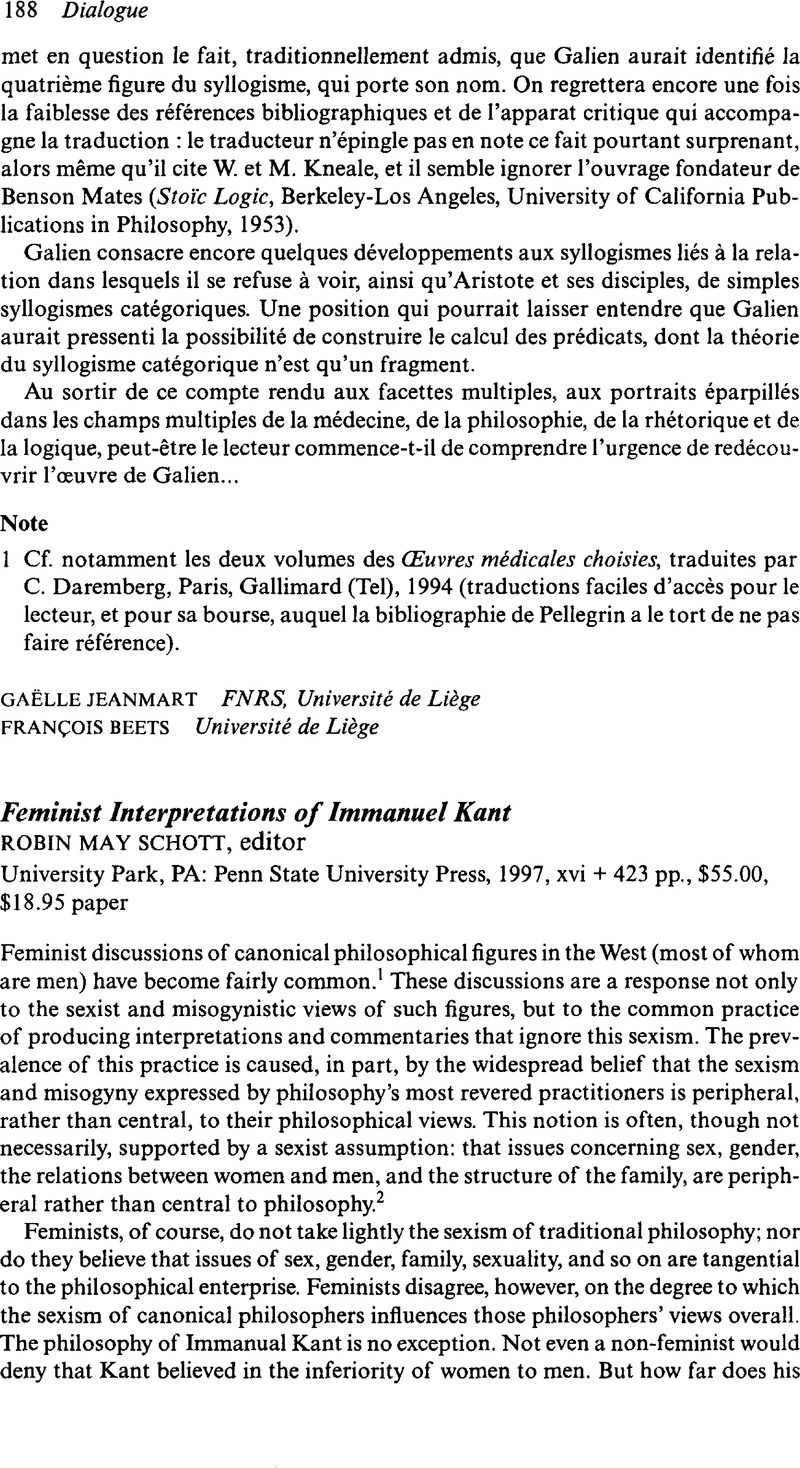No CrossRef data available.
Published online by Cambridge University Press: 13 April 2010

1 Henceforth, “philosophy” is to be understood to refer to Western philosophy. I wish to avoid the burden of including the modifier “Western” in every instance.
2 Carol Pateman makes this point with respect to political theory. She says, “Some parts of the books admitted to the canon are rarely studied; the sections and chapters that deal with relations between the sexes and the political significance of sexual difference are typically either omitted or merely mentioned in passing, since these matters are dismissed as peripheral to the real business of political theory” (The Disorder of Women [Cambridge: Polity Press, 1989], p. 2.Google Scholar
3 Immanuel Kant, Observations on the Feeling of the Beautiful and the Sublime, translated by Goldthwait, John T. (Berkeley and Los Angeles: University of California Press, 1978), p. 221; quoted in the editor's Introduction.Google Scholar
4 For a discussion of the masculinity of reason, see Lloyd, Genevieve, The Man of Reason, 2nd ed. (Minneapolis: University of Minnesota Press, 1993).Google Scholar
5 Notice that Kant's conception of rationality may be male-biased regardless of his views about women's actual capacity to reason. Nancy Tuana argues that Descartes's view of reason is male-biased, despite the fact that he believed that women and men are equally capable of reason (Tuana, Nancy, The Less Noble Sex [Bloomington and Indianapolis: Indiana University Press, 1993], p. 63).Google Scholar